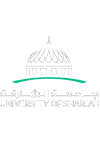This in partnership with the Regional Center for Space Science and Technology Education for Western Asia-Jordan/UN (RCSSTE), Al al-Bayt University, and the Arab Union for Astronomy and Space Sciences (AUASS). It was held using remote communication programs (Zoom) to ensure the safety of participants while adhering to the precautionary measures outlined by the relevant authorities in the United Arab Emirates in combating the COVID-19 pandemic.
The workshop aimed to introduce the attendees to the capabilities of the Sharjah Observatory in observing stars and exoplanets, how to access and use astronomical databases and catalogs, techniques, and methods of spectroscopic analysis of binary and multiple stars, and techniques and methods of orbital solution of binary stars. As well as providing the participants with scientific research skills such as using databases, analyzing programs, documentation methods, writing, editing, and scientific publishing, and allow them to meet prominent figures in the field. The workshop targets graduate students and students who wish to pursue their graduate studies in the fields of physics, computer sciences, mathematics, and engineering.
In his opening speech to the ceremony, His Excellency Prof. Hamid M.K. Al Naimiy, Chancellor of the University of Sharjah and General Director of SAASST conveyed the highest expressions of gratitude and appreciation to His Highness Sheikh Dr. Sultan bin Muhammad Al Qasimi, Member of the Supreme Council, Ruler of Sharjah, and President of the University of Sharjah, for his continuous support of the Academy, which was established by His Highness as a national development project and a scientific research headquarters seeking to serve and educate society in all areas of space science and to be a world leader in space sciences research and the establishment of the United Arab Emirates as a scientific center in the Arab Gulf region and the world. His Excellency also welcomed the participants and attendees in the workshop and talked about the significance of studying and researching binary and multiple stars as an important area of astrophysics for many reasons. Binary stars, he continued, provide the best method for astronomers and astrophysicists to determine the mass of a distant star amongst other uses. The workshop also works to support the specialized cadres in this field and fostering physics knowledge and learning.
His Excellency then touched on SAASST and its most prominent new developments and achievements, which in its pursuit of His Highness's vision and interest in scientific research that serves the development of society, has become one of the most comprehensive centers in the world in the field of astronomy and space science and research for what it includes from a group of facilities such as research laboratories, optical Observatory, Planetarium, and space shows and exhibitions. Each of its departments excels in its field of specialization and offers the researchers and visitors communities a unique space experience as it is a pioneer in the technology it uses and offers an enjoyable educational experience.
During the past two years, he continued, SAASST has published more than 30 research papers and articles in prestigious international journals and is looking for more of these achievements using its various research projects and laboratories. SAASST is also keen on organizing workshops, lectures, seminars, and conferences aimed at benefiting specialists and amateurs in this field alike, and it focuses on public awareness through the Planetarium shows, space exhibitions, and summer camps. It is also keen to adapt to external conditions such as the spread of the COVID-19 pandemic and ensure the continuity of providing services and scientific materials to society using the available means and technologies.
His Excellency the Chancellor of the University of Sharjah and the General Director of SAASST also mentioned the new "Masters of Science in Astronomy and Space Sciences" program, which the University launched in cooperation with Sharjah Academy for Astronomy, Space Sciences, and Technology, and aims to enhance the academic and professional knowledge of students, in addition to providing them with the required expertise in the field of astronomy and space sciences through working on specialized research in various astronomical topics and developing projects that support the space sector in the United Arab Emirates and the world.
For his part, Prof. Mashhoor Ahmad Alwardat, Deputy General Director of SAASST for Academic Affairs, gave an overview of the workshop and the cooperation between the Academy and the University of Sharjah with specialized scientific entities in the field of astronomy and space sciences regionally and internationally. He added, SAASST is consistent in organizing various activities that aim to serve the community by educating its various members on the most important concepts, achievements, and developments in the field of astronomy and space sciences, as well as enabling students, researchers and the general community to gain scientific information in an applied manner.
Several prominent astronomical figures and scholars in the world, and especially the Arab region, participated in the activities of this workshop including Prof. Martin Barstow, Chair of the UK Space Agency Science Program Advisory Committee, Chair of the Space Telescope Institute Council, President of the Royal Astronomical Society (2014-2016), and a member of Gaia Space Telescope Team; Prof. Andrei Tokovinin, a scholar in the field of Binary and Multiple stars, Professor of Astrophysics (DrSci), and works in the Cerro Tololo Inter-American Observatory - CTIO/AURA in Chile; Prof. Awni Kasawneh, Director of RCSSTE and Vice President of the AUASS; Prof. Mounib El-Eid, Prof. of Astrophysics at the American University of Beirut (AUB); Prof. Hatem S. Widyan, Professor of Astroparticles in Al al-Bayt University in Jordan; Dr. Antonios Manousakis Assistant Professor of Astrophysics at the University of Sharjah; Dr. Ali A. Taani, Associate Professor of Astrophysics at Balqa Applied University in Jordan; Dr. Alaa Azzam, University of Jordan; Dr. Hanna A. Sabat, Assistant Professor of Astrophysics in the RCSSTE; Dr. Ahmad Abu-Shattal, Assistant Prof. of Astrophysics: Al-Hussein Bin Talal University in Jordan; Dr. Mohammed Mardini, Researcher; along with several lecturers and graduate students from different universities in the UAE and the Arab region.



